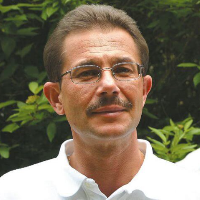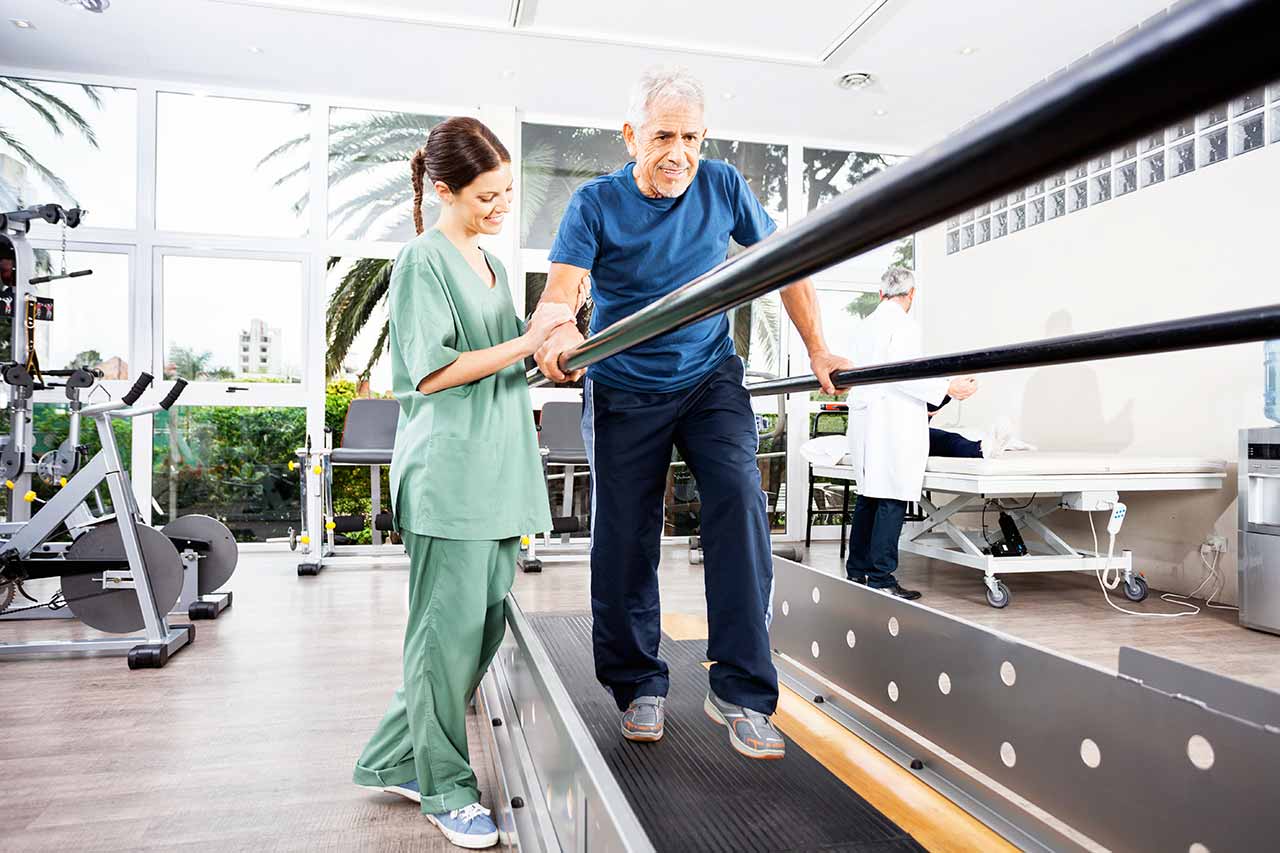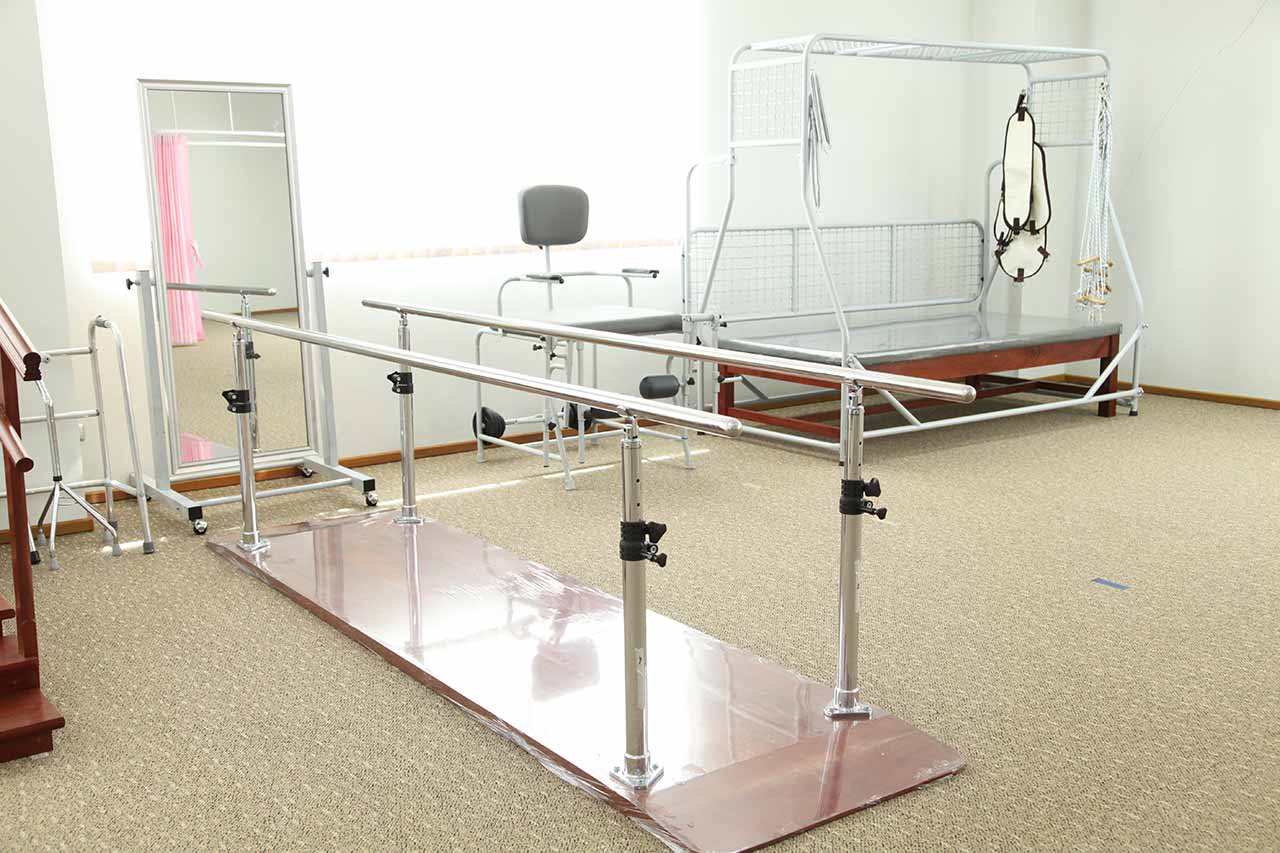
About the Department of Orthopedics and Orthopedic Rehabilitation at Clinic Limberger
According to the Focus magazine, the Department of Orthopedics and Orthopedic Rehabilitation at the Clinic Limberger ranks among the top German medical facilities specializing in orthopedic rehabilitation!
The department offers the full range of prevention and treatment for musculoskeletal diseases. Of particular interest is the rehabilitation of patients with degenerative diseases of large joints and previous musculoskeletal injuries. The department's experienced doctors have a variety of therapeutic techniques to guarantee the patient the restoration of mobility and the elimination of pain. The duration of the rehabilitation course is about 3 weeks. The complex of rehabilitation measures is selected on an individual basis, based on the degree of damage to the musculoskeletal system and the patient's general health condition. Standard orthopedic rehabilitation programs include exercise therapy, physiotherapy, diet therapy, and psychological support. The treatment concept is based on an individual approach, a respectful and friendly attitude, and an understanding of the patient's needs and wishes. The goal of the department's doctors is to help the patient get rid of movement disorders and return him to a full life. The department is headed by Dr. med. Herbert Wölfl.
An important focus of the department's medical team is rehabilitation treatment after joint replacement surgery (hip, knee, shoulder, and ankle arthroplasty), spinal surgery, and lower limb amputation. The doctors at the medical facility also treat patients with joint and spinal degenerative diseases. The department's competence also includes rehabilitation after injuries, dislocations, and fractures.
During the initial appointment, the department's specialist studies the patient's medical history, carries out an examination, and prescribes a complex of diagnostic tests to assess the person's general health condition and determine his rehabilitation potential. Based on the diagnostic results, an optimal course of rehabilitation with particular goals is developed. As a rule, the duration of an intensive course of rehabilitation is 2-3 weeks, after which the patient receives recommendations for therapeutic exercises at home. First of all, the department's doctors strive to restore mobility as much as possible and save the patient from pain. Treatment activities are then carried out aimed at achieving independence in everyday life and returning to professional activities.
The department's specialists use only reliable and effective methods in their clinical practice. The basis of any orthopedic rehabilitation program is the use of various approaches in therapeutic exercises, including training on special simulators, training in the swimming pool, Nordic walking, stretching, gymnastics with musical accompaniment, etc. An integral part of the therapeutic process is physiotherapy. The department's physiotherapists have excellent professional skills in massage, hydrotherapy, lymphatic drainage, electrotherapy, acupuncture, and other procedures.
During rehabilitation, experienced psychologists work with the patient. Many sessions with a psychologist are held in groups, whereby patients meet each other and exchange experiences with people who also struggle with complex orthopedic diseases. Relaxation therapy in groups is successfully carried out using autogenic training and progressive muscle relaxation. Whenever required, the department's psychologists are always ready for personal communication with the patient to provide him with the support necessary during the treatment and help him get rid of the depressive state.
A healthy diet also plays an important role in orthopedic rehabilitation. A balanced diet allows the patient to get nutrients and minerals for quick recovery. The department's nutritionists recommend patients eat foods high in protein, calcium, vitamin D, etc. In addition, the diet allows the patient to get rid of excess weight, since it creates additional load on the joints and slows down the rehabilitation process. The department is equipped with training kitchens, in which trained chefs hold classes on the preparation of hearty and healthy dishes.
The department's range of services includes the following:
- Prevention, treatment, and rehabilitation for degenerative joint diseases
- Pathological conditions after knee, hip, shoulder, and ankle replacement surgery
- Pathological conditions after spinal surgery for scoliosis, spinal canal stenosis, and spinal instability
- Pathological conditions after surgery for spinal disc herniations
- Pathological conditions after reconstructive surgery for shoulder joint diseases
- Pathological conditions after lower limb amputation
- Pathological conditions after radiosynoviorthesis
- Degenerative diseases of large joints and spine (arthrosis, spondylosis, and osteochondrosis)
- Prevention, treatment, and rehabilitation for musculoskeletal injuries and their complications
- Bone, joint, tendon, and muscle injuries and their complications, including war injuries
- Pathological conditions after osteosynthesis for fractures with or without joint involvement, including dislocations
- Pathological conditions after hip and knee transposition osteotomy after dislocations
- Pathological conditions after arthroscopy for joint ligament lesions
- Prevention, treatment, and rehabilitation for other diseases
The department's therapeutic options include:
- Therapeutic exercises
- Individual therapeutic exercises
- Manual therapy
- Proprioceptive neuromuscular facilitation
- Walking training
- Individual training plan on medical simulators and determination of isometric muscle strength
- Water aerobics (individually and in groups)
- Special aqua gymnastics (separate groups of patients with injuries of the hip joint, knee joint, and spine)
- Special spinal gymnastics and physical exercises for osteoporosis, strengthening veins, pelvic floor muscles, and back muscles
- Cardio workouts
- Physical exercises with musical accompaniment
- Therapeutic exercise using Nordic and classical walking, stretching, archery, and a treadmill
- Classes on an electric motor splint for fixing knee and shoulder joint fractures
- Individual therapeutic exercises
- Physiotherapy
- Therapeutic massage
- Classic massage
- Foot reflex massage
- Vibromassage
- Connective tissue massage
- Lymphatic drainage
- Thermotherapy
- Fango paraffin and clay wraps
- Treatments with a hot roller
- Heat wraps
- Cryotherapy
- Hydrotherapy
- Therapeutic baths
- Galvanic baths
- Baths for hands and feet
- Sitting baths
- Pouring
- Walking in the water
- Electrotherapy
- Acupuncture and acupressure
- Therapeutic massage
- Psychological care
- Individual and group sessions with a competent psychologist
- Psychological help in making a decision to quit smoking
- Psychological consultations for patients with stress
- Relaxation therapy using autogenic training and muscle relaxation
- Diet therapy
- Individual and group dietitian consultations
- Classes in the training kitchen
- Training in buying the proper food
- Other medical services
Photo of the doctor: (c) Klinik Limberger




